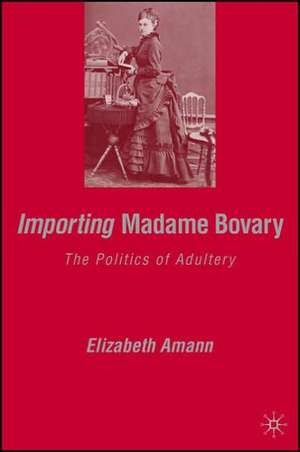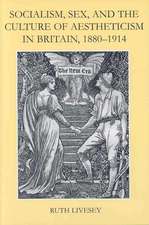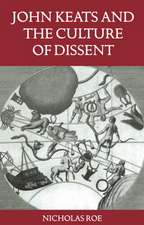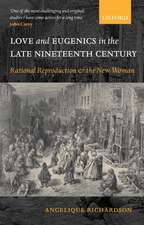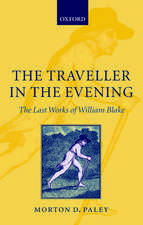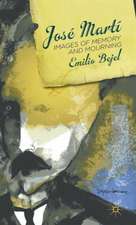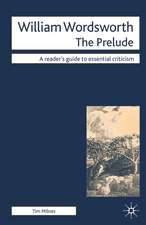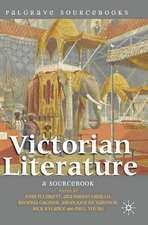Importing Madame Bovary: The Politics of Adultery
Autor E. Amannen Limba Engleză Hardback – 15 iun 2007
| Toate formatele și edițiile | Preț | Express |
|---|---|---|
| Paperback (1) | 379.39 lei 6-8 săpt. | |
| Palgrave Macmillan US – 15 iun 2007 | 379.39 lei 6-8 săpt. | |
| Hardback (1) | 382.02 lei 6-8 săpt. | |
| Palgrave Macmillan US – 15 iun 2007 | 382.02 lei 6-8 săpt. |
Preț: 382.02 lei
Nou
Puncte Express: 573
Preț estimativ în valută:
73.14€ • 76.17$ • 60.69£
73.14€ • 76.17$ • 60.69£
Carte tipărită la comandă
Livrare economică 13-27 februarie
Preluare comenzi: 021 569.72.76
Specificații
ISBN-13: 9781403976062
ISBN-10: 1403976066
Pagini: 284
Ilustrații: V, 277 p.
Dimensiuni: 140 x 216 x 22 mm
Greutate: 0.43 kg
Ediția:2006
Editura: Palgrave Macmillan US
Colecția Palgrave Macmillan
Locul publicării:New York, United States
ISBN-10: 1403976066
Pagini: 284
Ilustrații: V, 277 p.
Dimensiuni: 140 x 216 x 22 mm
Greutate: 0.43 kg
Ediția:2006
Editura: Palgrave Macmillan US
Colecția Palgrave Macmillan
Locul publicării:New York, United States
Cuprins
Exhuming Marguerite Gautier An Unbridled Bride A Marriage Sans-culotte On Tour Grafting
Recenzii
'A strikingly brilliant approach to influence and intertextuality, Importing Madame Bovary sheds new light on erotic play and its potential for socio-political upheaval in major French, Spanish and Portuguese novels from the nineteenth century. A remarkably sharp, exacting and insightful book.' - Francisco Caudet, Catedrático, Universidad Autónoma de Madrid
'Amann's Importing Madame Bovary is a finely crafted and clearly written comparative analysis of three major nineteenth-century novels of adultery: Flaubert's Madame Bovary, Eça de Queirós's O primo Basilio and Leopoldo Alas's (Clarín) La Regenta. Through masterly readings of these texts she intelligently argues and, moreover, convinces - that O primo Basilio and La Regenta rather than being imitations of Flaubert's masterpiece are deliberate acts of appropriation by the Iberian authors. A groundbreaking study, Importing Madame Bovary brilliantly explores the textual dialogues among these three novels in order to reveal the historical context in which Flaubert, Eça de Queirós and Clarín inscribed in their novels. This book should be required reading for students of the nineteenth-century European realist novel in that it proves that a comparative cultural, historical, and textual reading is essential to understanding the dialogic nature of the adultery novel in France, Portugal and Spain.' - Alda Blanco, Professor of Spanish, University of Wisconsin-Madison
"Amann argues that some of the mostimportant 19th-century French, Spanish, and Portuguese adultery novels make allegorical references to the revolutionary struggles of 1848, to the breakdown of the alliance between the bourgeoisie and the proletariat, and to the rise of the French Second Empire. The contrast between the sentimentality of a tear-jerking narrative genre and its hidden political message is entirely unexpected. A smart, seductive book." - Thomas Pavel, Gordon J. Laird Distinguished Service Professor, University of Chicago
"This is a major accomplishment, a book so full of original insights and intelligent analysis that it will leap to the top of the pile of criticism on the nineteenth-century European novel. Amann has done a spectacular job of coaxing out of four major novels fresh ideas and smart commentary, and she provokes serious thinking on the part of her readers. While the main focus of the book is the reception/adaptation/'importation' of Flaubert's Madame Bovary into the Iberian Peninsula in the form of Eça de Queirós's O primo Basílio and Leopoldo (Clarín) Alas's La regenta, Amann also weaves into her discussion another text, Dumas's La dame aux camélias, which serves as a kind of ur-text to the discussion she lays out in dazzling detail." - David T. Gies, Commonwealth Professor of Spanish, University of Virginia
'Amann's Importing Madame Bovary is a finely crafted and clearly written comparative analysis of three major nineteenth-century novels of adultery: Flaubert's Madame Bovary, Eça de Queirós's O primo Basilio and Leopoldo Alas's (Clarín) La Regenta. Through masterly readings of these texts she intelligently argues and, moreover, convinces - that O primo Basilio and La Regenta rather than being imitations of Flaubert's masterpiece are deliberate acts of appropriation by the Iberian authors. A groundbreaking study, Importing Madame Bovary brilliantly explores the textual dialogues among these three novels in order to reveal the historical context in which Flaubert, Eça de Queirós and Clarín inscribed in their novels. This book should be required reading for students of the nineteenth-century European realist novel in that it proves that a comparative cultural, historical, and textual reading is essential to understanding the dialogic nature of the adultery novel in France, Portugal and Spain.' - Alda Blanco, Professor of Spanish, University of Wisconsin-Madison
"Amann argues that some of the mostimportant 19th-century French, Spanish, and Portuguese adultery novels make allegorical references to the revolutionary struggles of 1848, to the breakdown of the alliance between the bourgeoisie and the proletariat, and to the rise of the French Second Empire. The contrast between the sentimentality of a tear-jerking narrative genre and its hidden political message is entirely unexpected. A smart, seductive book." - Thomas Pavel, Gordon J. Laird Distinguished Service Professor, University of Chicago
"This is a major accomplishment, a book so full of original insights and intelligent analysis that it will leap to the top of the pile of criticism on the nineteenth-century European novel. Amann has done a spectacular job of coaxing out of four major novels fresh ideas and smart commentary, and she provokes serious thinking on the part of her readers. While the main focus of the book is the reception/adaptation/'importation' of Flaubert's Madame Bovary into the Iberian Peninsula in the form of Eça de Queirós's O primo Basílio and Leopoldo (Clarín) Alas's La regenta, Amann also weaves into her discussion another text, Dumas's La dame aux camélias, which serves as a kind of ur-text to the discussion she lays out in dazzling detail." - David T. Gies, Commonwealth Professor of Spanish, University of Virginia
Notă biografică
ELIZABETH AMANN is an associate professor at Columbia University, USA, where she specializes in Nineteenth-century European literature. She has also taught at the University of Chicago and Yale University.
